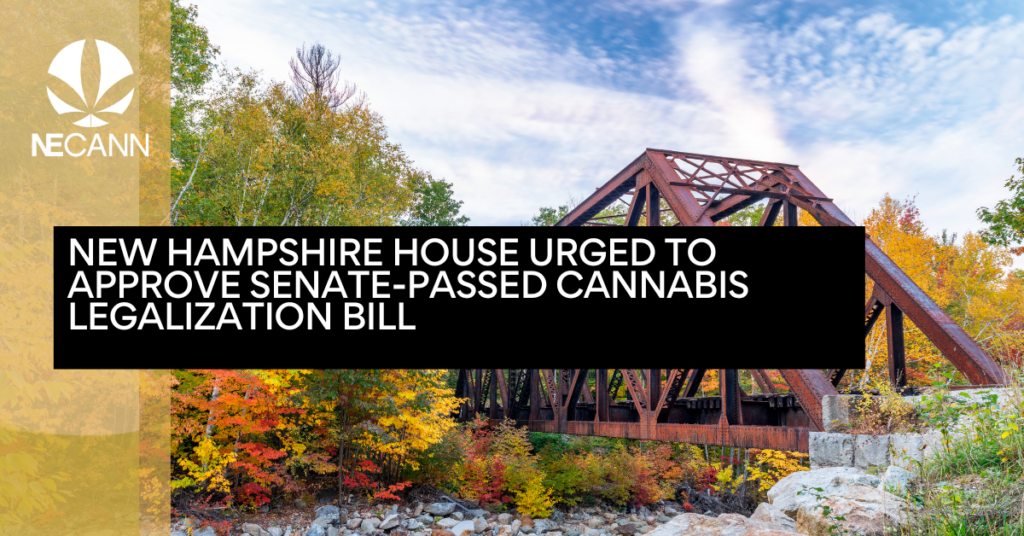For years, the New Hampshire House of Representatives has approved cannabis legalization measures only to see them fail in the state Senate. This month, for the first time, the Senate passed a legalization bill, and Governor Chris Sununu is on board. Advocates are now urging the House not to let this opportunity slip away.
Sponsored by state Rep. Ed Osienski (D), House Bill 1633, as amended in the Senate, would allow adults to possess up to two ounces of cannabis starting January 1, 2026. It also legalizes specific amounts of cannabis concentrates and infused products. Currently, possession of up to three-quarters of an ounce results in a $100 fine with escalating penalties for repeated offenses within three years. Possession of over three-quarters of an ounce remains a misdemeanor, punishable by up to a year in jail.
In 2021, New Hampshire law enforcement reported over 1,000 arrests for cannabis possession. Each arrest can lead to trauma, stress, expenses, and a life-altering criminal record. Some cases also involve pretrial incarceration. HB 1633 aims to stop these arrests and citations and prevent discrimination that ruins lives. The bill ensures that people won’t lose their children, professional licenses, or medical care due to responsible cannabis use. It also provides for the expungement of prior cannabis possession and cultivation convictions.
While HB 1633 is a significant step forward, some cannabis advocates are concerned about its provisions. Zoë Patchell, executive director and co-founder of Delaware Cannabis Advocacy Network, expressed concerns about the proposal giving certain businesses an unfair advantage. “This bill will allow six businesses to basically skip the line and get guaranteed licenses when everyone else will likely be subjected to the lottery process,” Patchell said.
The bill includes criminal penalties that some believe are too harsh for consuming cannabis in a vehicle or smoking in public. The regulatory structure has also raised concerns. The Senate version sets up a franchise model with only 15 stores, as required by the governor, and does not automatically allow alternative treatment centers (ATCs) to serve adult-use consumers.
Legalization brings regulation and economic benefits. Regulated markets ensure that cannabis products are lab-tested and labeled for dosage, unlike unregulated products that may contain hazardous pesticides and other contaminants. Legalization also allows for age-gating sales and consumer education. Moreover, the proceeds from legal sales would benefit New Hampshire farmers and licensees rather than the illicit market or neighboring states. The taxes or “franchise fees” would go to New Hampshire’s coffers.
Advocates urge the House to concur with the Senate’s changes to ensure legalization is passed. They fear that a committee of conference could kill the bill, as the Senate president has expressed a preference for HB 1633 to fail. The bill’s passage would start the process of legalization and regulation, with the possibility of adjusting it in future legislative sessions to improve it.
With uncertainty on the horizon, including new state senators and a new governor in 2025, it is crucial that the House seizes this opportunity to legalize cannabis and increase freedom. The bill can and should be improved, but it must first be passed into law.
For the latest updates on cannabis business news, subscribe to our daily newsletter.



